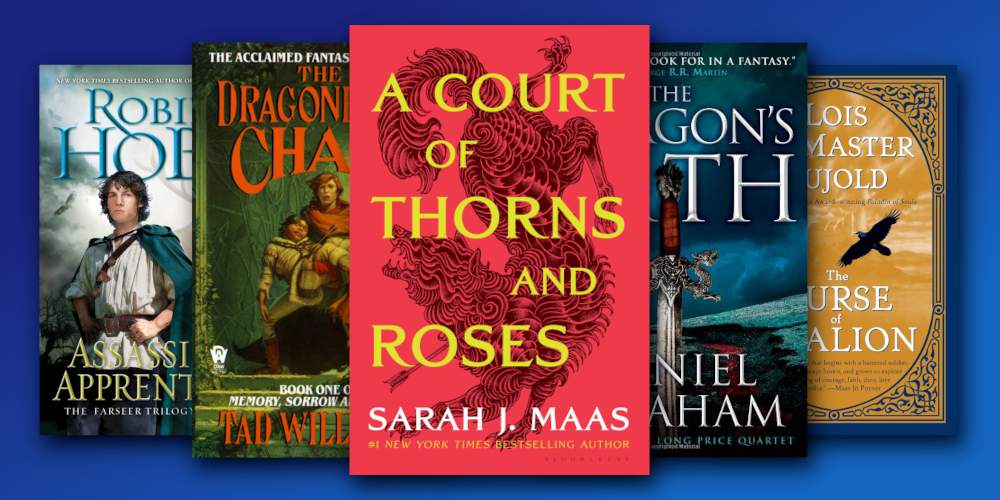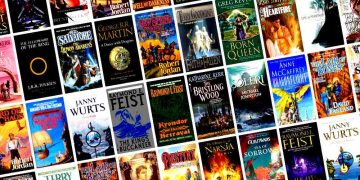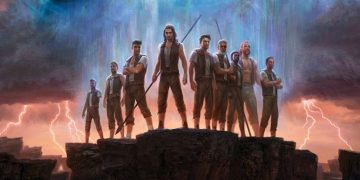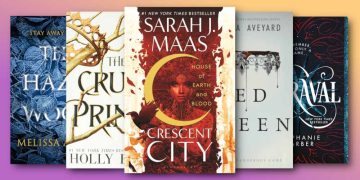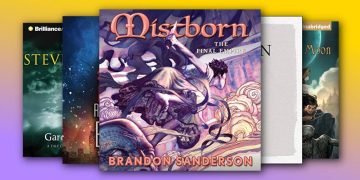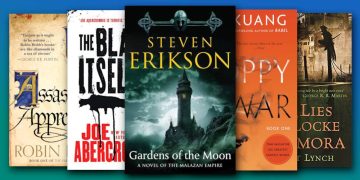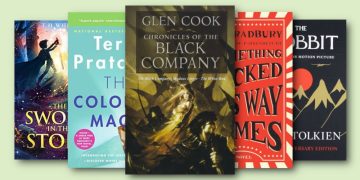Traveling to foreign worlds takes one page at a time. Each character's journey unlocks a different set of possibilities—and when it comes to fantasy stories, every page opens up entire universes. That's the power of one fantasy subgenre in particular: high fantasy.
High fantasy stories are those that take place in alternate fictional worlds rather than here in the "real world." They often have unique races, societal systems, and forms of magic. It's mainly thanks to J. R. R. Tolkien's influence that high fantasy books have mainstream popularity.
You probably already know about Harry Potter, Lord of the Rings, and A Song of Ice and Fire, which all blew up via their movies and TV series. But what about high fantasy stories that aren't set in Hogwarts, Middle-Earth, or Westeros? Are any of them still relevant today?
Here are our favorite classic high fantasy books that are worth reading today. Their worlds and characters are just as interesting and fulfilling now as they were when they first came out.
10. The Prince of Nothing Trilogy (R. Scott Bakker)
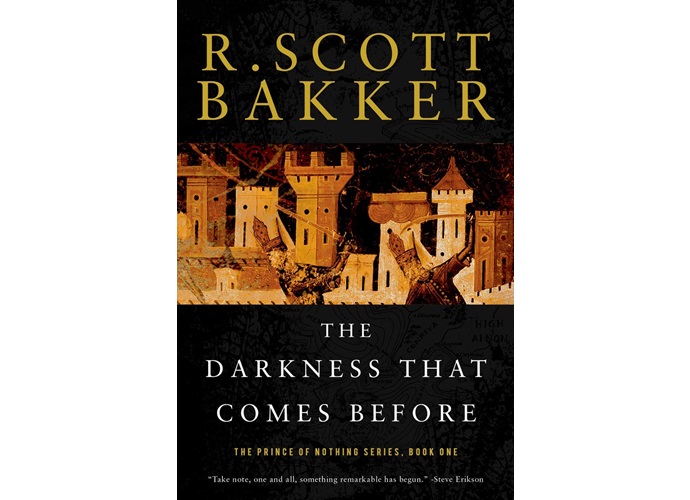
Here's a thought-provoking classic high fantasy series that deconstructs the trope of "The Chosen One."
The Prince of Nothing Trilogy follows the rise of charismatic warrior Anasûrimbor Kellhus, who won over his people's approval with his wartime feats. However, when his rise to power turns sinister, his mentor Drusas Achamian must stop him.
R. Scott Bakker referred to the history of the Byzantine Empire to illustrate the charismatic-but-dangerous rise of cult-like leaders. And yet, with his Dune inspirations, he gave an anti-Paul Atreides element to Kellhus that fits well with the novel's anti-authoritarian themes.
9. The Farseer Trilogy (Robin Hobb)
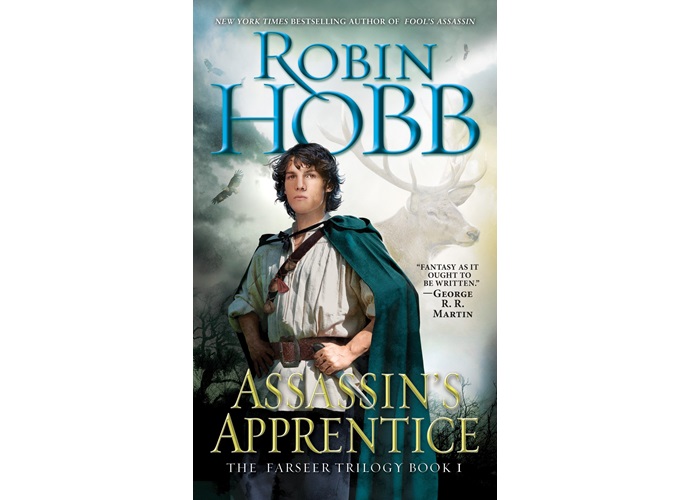
A hero recalling his larger-than-life journey is a rarity in the realm of fantasies, but The Farseer Trilogy took this approach and made it into a refreshing character-driven story.
The books follow FitzChivalry Farseer, an illegitimate son of a prince whose upbringing is never easy. However, his journey proved to be more challenging, with his encounter with a wolf and wielding two forms of magic: the accepted Skill and the despised Wit.
Less emphasis is given to massive-scale plots and more is given to explore Fitz's character. While he finds belongingness to "otherness," he has to skillfully fight for it. That journey makes The Farseer Trilogy more than just eye-catching world-building.
8. The Dark Tower Series (Stephen King)
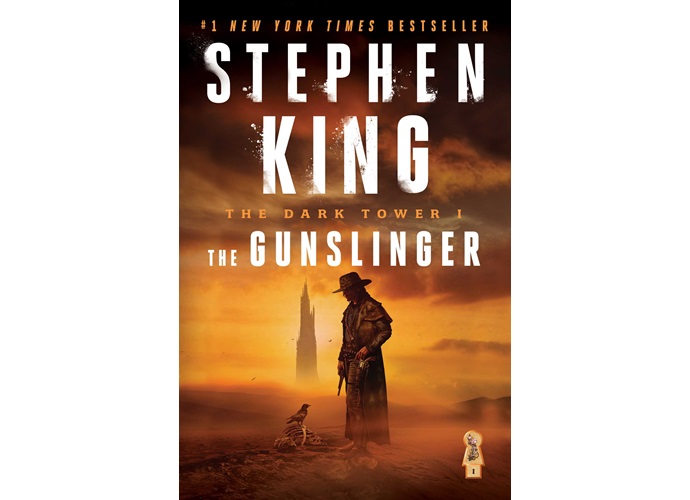
Stephen King's works have been thematically distinct, but there's one novel series that manages to bind them all with one sweeping lore.
The Dark Tower Series follows the exploits of Roland Deschain, a lone gunslinger who spends his time and energy searching for the titular Dark Tower that expands on King's multiverse.
The mesmerizing grace of Tolkien's Middle-Earth and the subtle grit of Westerns clash in this epic series that seamlessly jumps from one genre to another (and from one Stephen King book to the next).
But at its heart is the journey of Roland, whose origins and motives get unraveled as the series progresses. It's truly an exciting classic!
7. The Dagger and the Coin Series (Daniel Abraham)
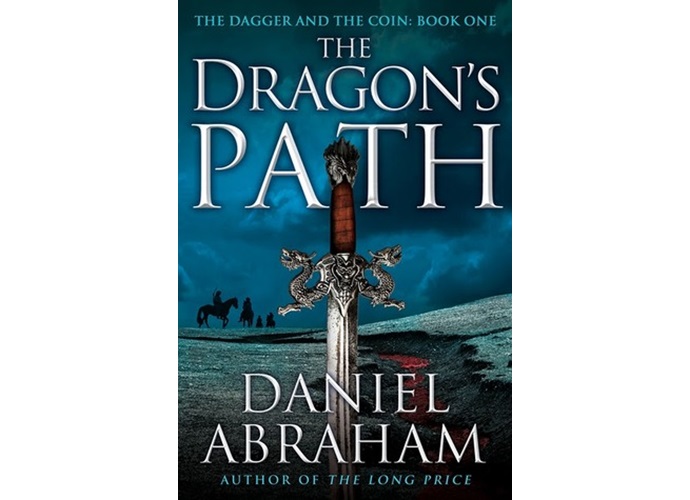
Daniel Abraham rose to fame with the sci-fi novel series The Expanse, using a pseudonym shared between him and Ty Franck.
One of the primary themes explored in The Expanse is how political intrigue tampers with the very fabric of society's progress. That theme also exists in Daniel Abraham's fantasy counterpart series, which feels a lot like a high fantasy version of The Expanse.
The Dagger and the Coin Series follows a triad of heroes: the apprentice Cithrin, the jaded Marcus, and the idealistic Geder. They stumble upon a dark truth while simultaneously the feud between the Free Cities and the Severed Throne spirals out of control.
6. World of the Five Gods Series (Lois McMaster Bujold)
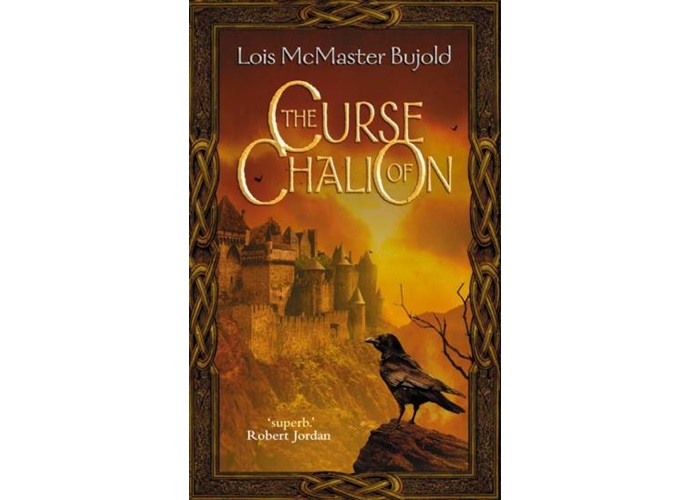
The theme of power play is often explored in fantasy, which parallels much of world history. It's no different in The Curse of Chalion and its follow-up Paladin of Souls, which owed huge inspiration to Spanish history, specifically the Spanish Reconquest.
The Curse of Chalion centers on Cazaril, a world-weary noble-turned-slave who returns to serve as a secretary-tutor to second-in-line heir Iselle. But beyond a line of work he dreads, Cazaril uncovers a sinister plot that requires a dangerous form of magic to stop.
Sprawling with gritty world-building, this serves as a great start for the World of the Five Gods series.
5. The Chronicles of Prydain (Lloyd Alexander)
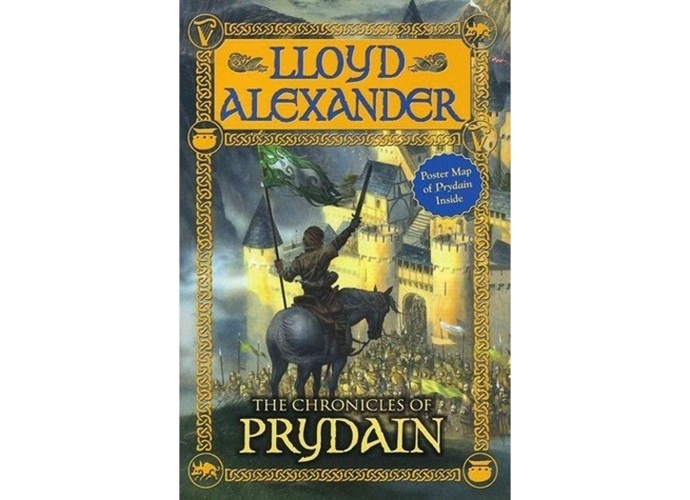
Here's one high fantasy series that children will love. The Chronicles of Prydain centers on Taran's journey, a farmhand with dreams of becoming a great hero. He's given a task to protect Hen Wen—a white-skinned pig who possesses clairvoyant skills—from threats around Prydain.
This book series is proud in its Welsh mythology roots. Author Lloyd Alexander even based the land of Prydain on Wales. But rather than dwelling more on heroic feats, the series gives priority to exploring Taran's growth as a protector (or "Assistant Pig-Keeper").
4. Mordant's Need Series (Stephen R. Donaldson)
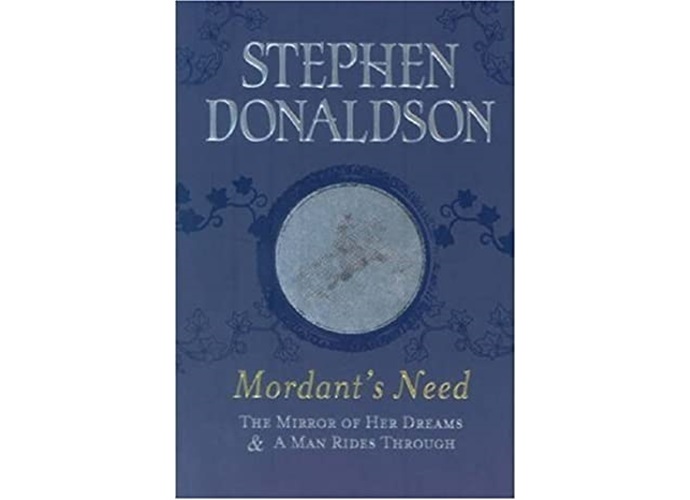
Author Stephen R. Donaldson loved exploring the idea of accepting hard realities in The Chronicles of Thomas Covenant whose main hero, Thomas, has to set his cynicism aside to accept his unfavorable fate as a savior. This also applies to the Mordant's Need Series.
Donaldson's story follows a woman named Terisa Morgan who stumbles upon an Imager named Geraden and travels from the modern world through a mirror to a medieval-like setting called Mordant.
Terisa, who struggles with depression, has to distinguish reality from fantasy to stop a greater danger. While other fantasy works have separate worlds, Mordant's Need has you choosing which reality you trust.
3. The Memory, Sorrow, and Thorn Series (Tad Williams)
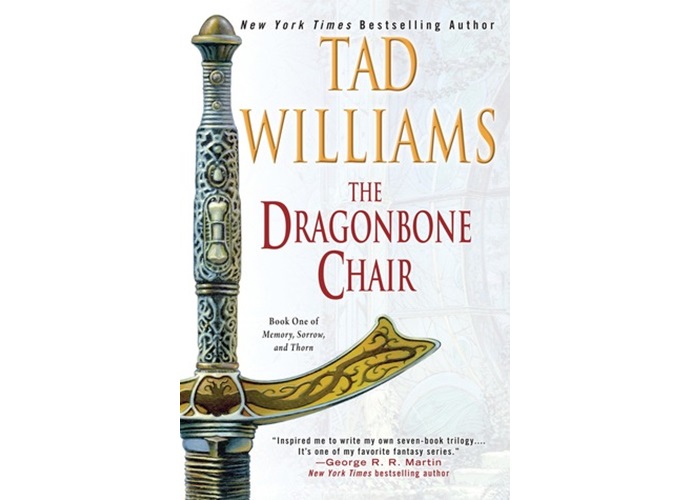
Game of Thrones fans will appreciate this epic fantasy series, given that author George R. R. Martin cited it as a primary inspiration for his A Song of Ice and Fire books. Seeing its premise, the parallels are clear.
The Memory, Sorrow, and Thorn Series is set on the continent of Osten Ard, where several races live in harmony. When the High King perishes, the Storm King resurrects to reclaim his rule, forcing a small group of warriors to thwart his plans.
In its three books, many characters' perspectives—both good and evil—are explored. That makes Osten Ard feel more immersive.
2. The Lyonesse Trilogy (Jack Vance)
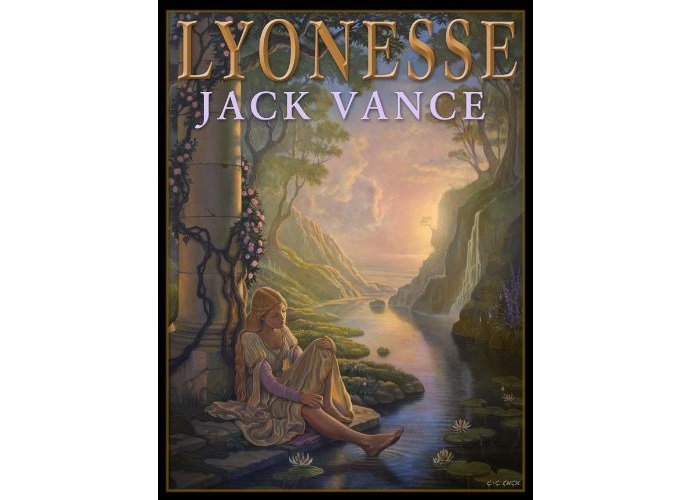
One of the most overlooked books in high fantasy, The Lyonesse Trilogy, consists of three interlocking stories that overlap each other.
The main storyline follows Aillas, king of Troicinet, who is shipwrecked on the coast of Lyonesse. There, he meets and falls for Princess Suldrun, and their affection for each other changes the history of Hybras.
No other depiction of Atlantis could be as dense and massive as Jack Vance's Lyonesse Trilogy. The author also borrowed many elements from Arthurian lore, even down to setting this before the birth of King Arthur and creating variations of Merlin and the Round Table.
1. A Court of Thorns and Roses (Sarah J. Maas)
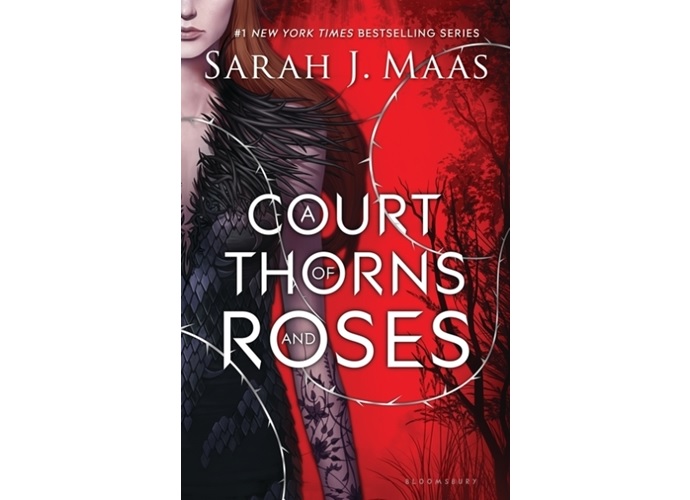
This fantasy series follows a girl named Feyre Archeron. After she kills a wolf in the woods, a mysterious beast demands retribution because the beast is actually a Faerie. Her actions propel her to enter the land of Prythian and team up with the hostile Tamlin to make things right.
Many stories take inspiration from other greater stories. For the young adult novel series A Court of Thorns and Roses, it borrows the frameworks of Beauty and the Beast and Tam Lin to mold them into a grand-scale fight of good versus evil, with an epic love story at its heart.
